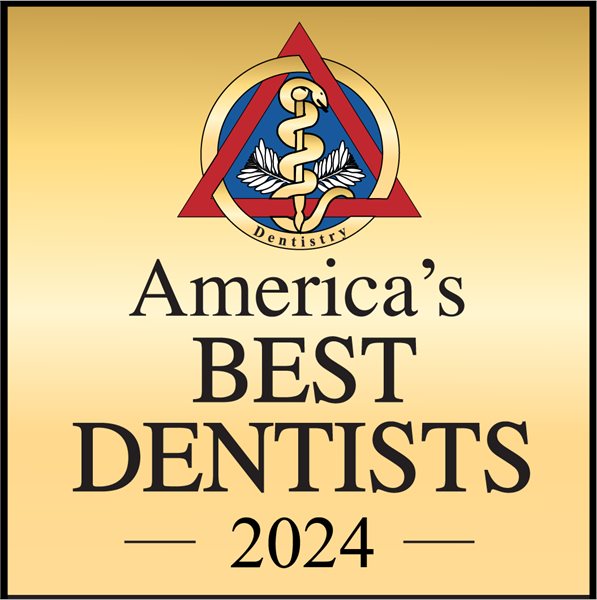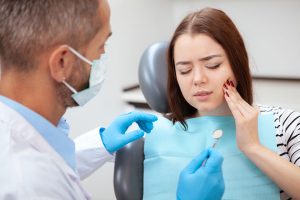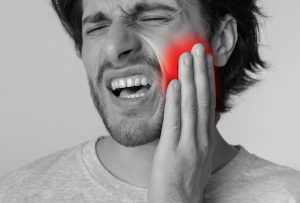Emergency Dental Care in Northridge, CA
Handling Dental Emergencies at Kevin H Gropp, DDS
Emergencies can happen at any time, and dental emergencies are no exception. When you experience a dental issue that requires immediate attention, seek the skills of Dr. Kevin H Gropp and our dental team at Kevin H Gropp, DDS in Northridge.
We welcome patients from all around the Northridge area to trust our dental professionals in their time of need. With our state-of-the-art equipment and years of experience, you can rest assured you’re in good hands. Contact our emergency dentist today for emergency dental services.
What Is Emergency Dentistry?
Emergency dentistry deals with the immediate care and treatment of issues that require urgent dental care. It focuses on providing relief and solutions to alleviate pain, prevent further damage, and restore oral health during emergencies. When you experience sudden tooth pain, a broken tooth, or any other dental issue that requires immediate attention, you’ll likely need prompt emergency dental care.
If you’re experiencing a dental emergency, or you’re unsure, contact our Northridge emergency dentist at 818-709-8645. If you’re worried about the costs of emergency dental services, our team will explain your options and go over your dental insurance.
Types of Dental Emergencies
There are many common dental emergencies. It’s best to be prepared and understand what constitutes seeking urgent dental care.
Toothache
A toothache is a typical dental emergency caused by various factors, such as tooth decay, a dental abscess, or an impacted wisdom tooth. It’s essential to seek dental care promptly to identify and treat the underlying cause of the toothache.
Knocked-Out Tooth
Having a tooth knocked out, also known as an avulsed tooth, requires immediate dental action to increase the chances of saving the tooth. If a tooth comes loose, gently rinse it with water without removing any attached tissues. Try to place the tooth back into the socket or store it in milk or saliva while seeking emergency dental care.
Broken or Fractured Tooth
A broken or fractured tooth can occur due to various reasons, such as a traumatic injury or tooth decay. Depending on the severity, a cracked tooth may cause pain, sensitivity, or sharp edges that can damage soft tissues in the mouth.
Dental Abscess
A dental abscess is a pocket of pus that forms due to a bacterial infection in the tooth or gums. It often presents with severe pain, swelling, redness, and a pimple-like bump on the gums. An abscessed tooth requires immediate attention as the infection can spread if left untreated. The dentist will evaluate the abscess and may perform a root canal treatment or extraction to eliminate the infection.
Lost Filling or Crown
A lost filling or crown can expose the underlying tooth structure, causing sensitivity, discomfort, or vulnerability to further damage. It’s important to seek dental care as soon as possible to restore the filling or crown and protect the affected tooth from potential complications.
Dental Trauma
Accidents or injuries can lead to dental trauma, such as a fractured tooth, a dislodged tooth, or soft tissue injuries in the mouth. Dental trauma requires immediate attention to assess the extent of the damage and provide appropriate treatment. In some cases, quick action can help save a dislodged tooth.
Severe Gum Infection
Gum infections, such as advanced periodontitis or acute necrotizing ulcerative gingivitis (ANUG), can cause severe pain, swelling, bleeding gums, and bad breath. Immediate dental care is necessary to manage the infection, alleviate pain, and prevent further damage to the gums and underlying bone structure.
Orthodontic Emergencies
Broken wires, loose brackets, or painful irritation from braces can be considered orthodontic emergencies. Contacting your orthodontist for guidance and arranging an appointment is crucial to address the issue and prevent any disruptions to treatment.
Steps to Take During a Dental Emergency
During a dental emergency, it’s crucial to take the proper steps to manage the situation effectively:
- Assess the Situation: Evaluate the severity of the dental emergency and determine whether immediate professional care is required.
- Contact an Emergency Dentist: Reach out to your local emergency dental clinic or dentist as soon as possible to explain the situation and seek guidance on the next steps.
- Manage Pain and Discomfort: Use over-the-counter pain relievers or apply a cold compress to ease pain and reduce swelling until you receive professional care.
- Handle a Knocked-Out Tooth: If a tooth gets knocked out, gently rinse it with water (avoid scrubbing) and try to place it back into the socket. If not possible, keep the tooth moist in a container of milk or saliva and bring it to the dentist.
- Protect a Broken Tooth: If a tooth breaks, rinse your mouth with warm water and apply a cold compress to minimize swelling. Collect any broken pieces and bring them to the dentist.
What to Expect at an Emergency Dental Visit
During an emergency dental visit, the dentist will assess the situation, diagnose the problem, and recommend the most suitable treatment plan. The exact procedures may vary depending on the specific dental emergency, but generally, the following steps may be involved:
- Dental Examination: Our Northridge emergency dentist will examine your teeth, gums, and affected areas to determine the extent of the problem.
- Diagnostic Tests: X-rays or other diagnostic tests may be conducted to evaluate the condition and identify any underlying issues.
- Pain Management: Immediate measures will be taken to alleviate pain and provide temporary relief, such as dental anesthesia or pain medication.
- Treatment Recommendations: Based on the diagnosis, the dentist will discuss the treatment options and recommend the most appropriate course of action.
- Emergency Treatment: The dentist may perform emergency procedures, such as tooth extraction, dental restoration, or root canal treatment, depending on the situation.
- Future Prevention: We’ll also go over the best ways to prevent dental emergencies from occurring. While they can’t all be prevented, taking extra care of your oral health can help.
Frequently Asked Questions
When should I seek emergency dental care?
You should seek emergency dental care if you experience severe tooth pain, facial swelling, bleeding from the mouth, a loose or knocked-out tooth, a broken tooth, or signs of infection, such as an abscess or a pimple-like bump on the gums.
Are there ways to prevent dental emergencies?
While dental emergencies can happen unexpectedly, there are preventive measures you can take to reduce the risk. Maintaining good oral hygiene and addressing dental issues promptly can minimize the likelihood of dental emergencies.
Skilled Dental Care When You Need It Most
For patients experiencing dental emergencies, Contact our Northridge emergency dentist at 818-709-8645, and we’ll schedule your emergency dental appointment. We’re here for you when you need critical care, and you can trust our team to assess and deal with the dental emergency in a timely and professional manner.

Dr. Kevin H Gropp graduated from the University of Southern California School of Dentistry (USC) in 1988. Prior to studying at USC, he attended California State University Northridge (CSUN) where he earned his Bachelor’s degree in Biology. Dr. Kevin Gropp has been practicing in the Northridge area for over thirty years and values the community connections he has developed during this time.
Dr. Gropp is a member of the American Dental Association (ADA), California Dental Association (CDA), and the San Fernando Valley Dental Society (SFVDS). His passion for continuing his dental education through continuing education courses every year serves as a benefit to his patients as he is always up-to-date on the latest methods, materials, and technology in dentistry.




